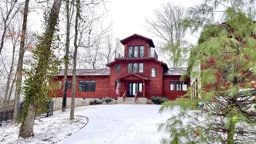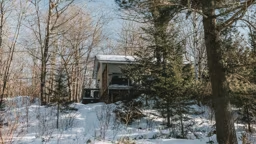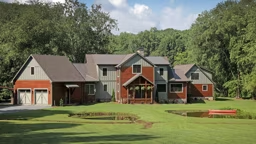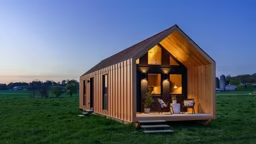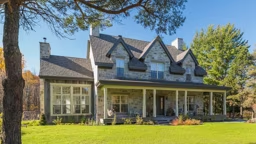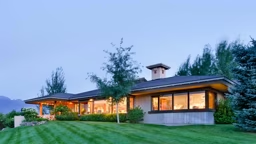Story & photos by Charles Meek
As my wife and I contemplated a log home for our Texas retirement abode, the first decision was whether to go with a full-round-log structure common in the Rocky Mountains, or a hewn-log structure more common in the Appalachian Mountains. I had become enamored with the dog-trot, hewn-log style cabin while hiking the Appalachian Trail. Then while doing research on old log homes back in Texas, my wife Cindy and I discovered that the dog-trot hewn-log style was prevalent in Texas during frontier days, especially by the German settlers. Some of these buildings are still standing and can be seen in such places as the Texas Hill Country town of Fredericksburg.
We felt that the hewn-log cabin style was more rustic and interesting than other styles of log homes. Especially since this style was indigenous to Texas, we decided that’s the way we’d go. Fortunately, we found a man in our area of central Texas who builds this style of cabin, Josh Chappell (Fisher, Texas). Our carpenter, Tommy Sutton (Austin, Texas), also helped construct our cabin.
Reclaimed materials
Before building, we took several journeys to seek reclaimed materials for the interior walls, ceilings and floors. We searched all over Texas. The sources of our lumber included a cottonseed oil mill, built circa 1890 in Seguin, Texas, and also a church built in 1901 in Taylor, Texas.
In the end, we accumulated pieces of antique lumber from a variety of species and other materials. A friend told us to “just put on the walls whatever makes you feel good.” So almost every wall is different, having used all manner of antique lumber from wherever we could find it. We have no drywall in our house, except for one blackboard wall in a bathroom and one ceiling with flowery wallpaper. We used bare wood of pine and pecky cypress, as well as painted wood of different colors from various reclamation projects, and even some old roof tin. We planed some of the painted beadboard, leaving the paint in the cracks. It is stunningly beautiful.
We used reclaimed doors throughout, including one old mesquite front door that originated in Mexico and had to be rebuilt. Our floors are mostly a mixture of a variety of pine, including longleaf pine.
An off-grid beginning
After our cabin was completed in 2004, we lived off-grid for 8 years until the regional electric company was able to give us a connection in 2013. We have a solar bank originally rated at 9.3 kW, which we believe was the largest off-grid residential system in Texas. Our power was self-contained and was supplemented by propane for the stove, furnace, hot water and dryer. Our TV is via satellite. Our Internet service is from wireless line-of-site. Our phone service comes over the Internet. And, of course, we have a septic system. Today, we are “grid-tied” as our solar panels supplement the power from the grid.
We have a 12,000-gallon capacity for rain water collection. The water is purified by several filters: a 25-micron filter, a 5-micron filter and a 1-micron filter. In addition to that, there is an ultraviolet light that also purifies the water. We have a well, which backs up the rain water supply, and we use it to water the lawn.










